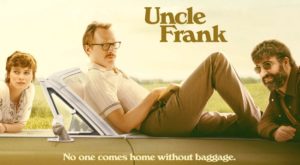
About a year ago, Amazon Prime released Uncle Frank, and I do not believe it has been talked about enough considering how much time we have all had to watch movies. Set in the 1970s, Frank Bledsoe (Paul Bettany) encourages his niece Beth (Sophia Lillis) to get out of their small hometown and see how big the world can be when it’s time for her to go to college. When Beth arrives in NYC she begins to discover herself and how different love can be from what she expected. It is clear through the beginning of the film that Beth’s Uncle Frank has to hide his sexuality from his unaccepting family and finds it hard to come out to Beth in fear that she won’t accept him. When Beth finds out unexpectedly, she is accepting and curious to know more about what being queer entails. However, early on, this film makes a point to not center the story around Beth, but around Frank. This is a coming-out story, but also quite a coming-of-age story.
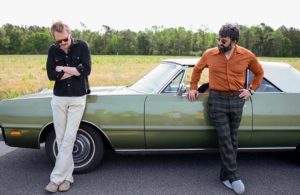
When Frank’s father, Daddy Mac (Stephen Root) dies, both Frank and Beth have to return home for the funeral. Frank, a now well-seasoned Manhattanite, and Beth, now an NYU student, both are unsure where they fit into their hometown of Creekville, SC. Frank is forced to confront his past on this trip home and is followed by his partner of 10 years, Wally (Peter Macdissi), whom his family has never met. Uncle Frank and his journey toward acceptance felt like a positive addition to the world of queer film that I think could actually change perspectives across the board.
Growing up with a lot of siblings, young Beth felt ignored by every member of her immediate family. Only visiting on special occasions, Beth’s Uncle Frank made her feel seen, heard, and accepted more than anyone else in her life. During a family gathering at the beginning of the film in a moment alone, Frank tells young Beth “You’re gonna be the person you decide to be, or are your gonna be the person everyone else tells you you are? Because you get to choose, you do.” Beth later realizes this conversation changed her life and she bestows unconditional support unto him because of it. When Beth and her family arrive in NYC for the first time, there is a scene where the family has dinner at Frank’s city apartment. Frank utilizes one of his sapphic women friends, Charlotte (Britt Rentschler) to play the role of “the beard” for this family gathering. The deep-seated shame that Frank carries is evident through this act. Hiding his relationship with Wally regardless of his overall success as an NYU professor comments on the idea that happiness is impossible without acceptance. Frank’s fears that his family won’t accept him, we learn later, stem from his father’s extreme emotional abuse through childhood. When Beth meets Wally at a party at Frank and Wally’s apartment, Frank ends up coming out to Beth- which changes the dynamic of their relationship but not by much.
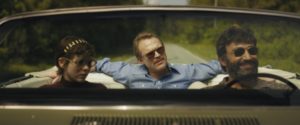
Beth’s perspective of the “Blind ally” is the shining light of the film. Even though Beth only meets three queer people throughout the film, one of whom uses her to get to know her Uncle, she becomes an ally to them without question. As I mentioned earlier, this film hardly scratches the surface of Beth’s sexuality but focuses on how she supports Frank in finding acceptance within himself and giving the rest of their family the chance to accept him. I think there is something to be said about the short scope of queerness in this film and how it can be seen as easily digestible to make a film that can actually affect people who are unaccepting or homophobic. So often, queer films that try to preach acceptance will not get through to any non-accepting people because they do not appeal to them. Something about the setting and the likeability of the characters makes me believe that this film could actually get through to people. While I do think Uncle Frank appeals to the queer community as well, the heartbreaking moments are really powerful, and anyone with the slightest bit of empathy will feel affected or changed by this film.
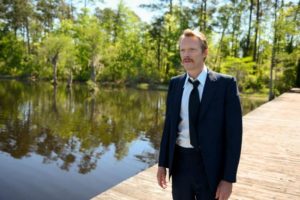
It’s not saying much that Uncle Frank made me cry because, truthfully, most films make me cry. However, there was something special about Paul Bettany’s performance and the comments his character made on alcoholism that made this film so hard-hitting for me. Uncle Frank shows alcoholism as a genetic disease and queerness as a light for Frank as his relationship with Wally is what keeps him sober. Sophia Lillis is a rising star and THE queer ally of Gen Z and I personally can’t wait to see what she does next. Watch this movie with your queer friends, watch it with your homophobic family, watch it alone with your cat! This movie is bound to make the world a more accepting place if only everyone could watch it and learn from Frank and Beth’s family how good acceptance can feel.
Incluvie Score: 4
Movie Score: 5
Movie Review originally published by Allie Posner on Medium
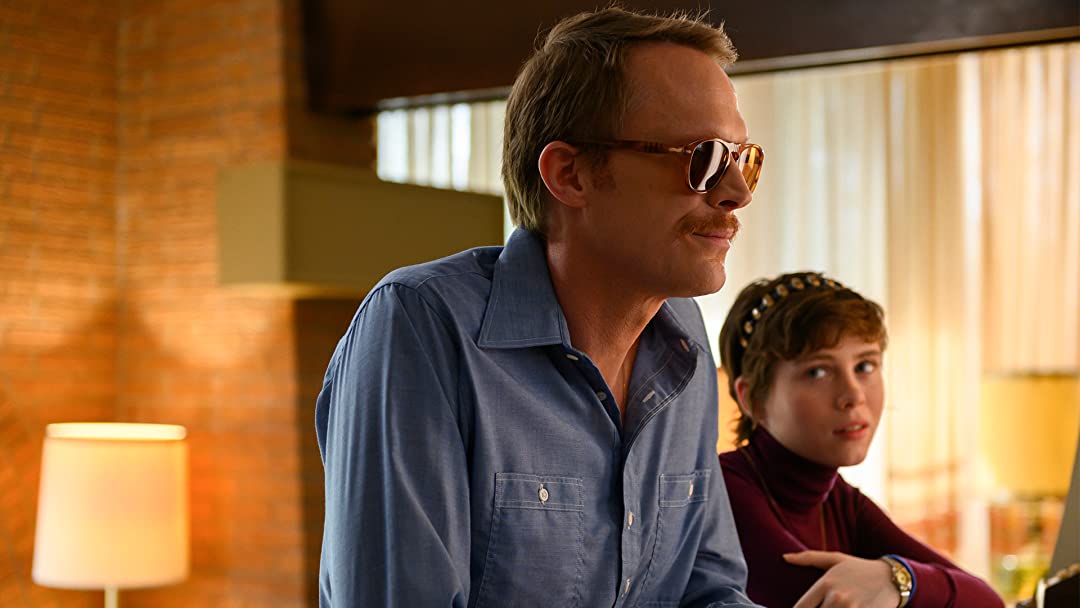
Comments